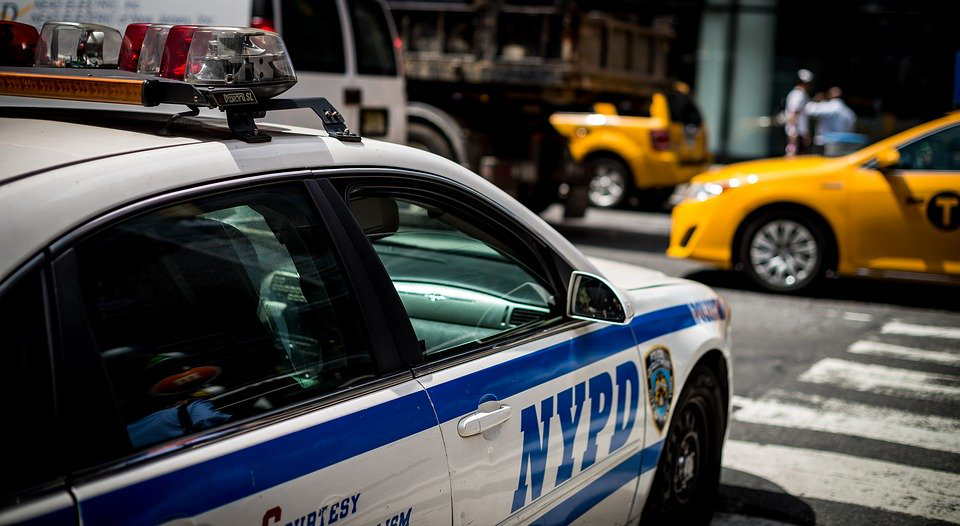
- admin
- March 11, 2020
- 1:16 pm
- No Comments
Common Mistakes Rookie Police Officers Make and How to Avoid Them
Law enforcement officers are an integral part of society in the US. They are entrusted with the crucial task of policing communities to eradicate crime and ensure a better and safer society.
Becoming a Police Officer in the United States
According to the latest statistics, there are over 900,000 full-time law enforcement officers reporting for duty in the United States.
The job is highly coveted, due to the number of benefits and a good salary package. Each year, thousands of potential candidates appear for civil service exams, which are the first step toward becoming a police officer.
However, because of the strict regulations and tough requirements for passing the exams, most people are unable to.
What Makes A Good Police Officer?
The high requirements for police officer exams are used to make sure that only those candidates who possess the right mindset and skills proceed to the next level. Policing communities is no easy task, and requires critical thinking, intelligence, ethical and moral values, communication skills, and discretion.
This ensures efficient protection and safety. It also ensures the officers are able to resolve problems effectively and are proactive in using all the resources at their disposal.
Rookie Mistakes Made By Police Officers
As with any job, it takes new police officers some time to get used to the requirements and learn how to go about their various responsibilities. Even the most educated, intelligent, and highly-trained police officers can make mistakes on the job.
Here are some common rookie mistakes police officers are guilty of:
Being Cocky and Overconfident!
Passing the police officer exam and completing your training often leaves people with a certain amount of pride.
While it’s nice to feel good about becoming a protector of the community, it’s important not to go overboard. Acting like you know everything and don’t need any help or guidance is the first mistake rookie officers make.
It’s also important to stay humble and listen to your superiors. Even if you have prior law enforcement experience, there is always a learning curve. Take your time and have an open attitude toward learning and growing in the field!
Not Asking Enough Questions
When it comes to the first few days at a new job, most people have little to no idea about what is expected of them. Making guesses with the hope of impressing your superiors is a big mistake, and can have disastrous consequences.
Your superiors expect you to ask questions, so there’s no need to feel embarrassed if you aren’t sure about something.
Don’t try to do too much too fast without asking for help because you feel like it shows your superiors you can handle anything—this is a recipe for failure!
Being Too Hard On Yourself or Holding Yourself Back
Everyone makes mistakes when they first start a new job. Even after years on the force, senior police officers make critical mistakes that can have severe implications.
If you keep being too hard on yourself after each mistake, you’ll burn out fast. This will not only affect your physical and mental health, but also your performance on the force. So learn from each mistake and move forward!
Similarly, if you feel like you have an idea that might work better than what someone else has suggested, don’t be afraid to speak out.
Many rookie officers feel like it’s not their place to contradict someone who’s been on the force for long. But very often, someone new to the job can shine a better light on existing problems!
 Going It Alone
Going It Alone
The first few months of working as a police officer can be challenging. There will be many times where you’ll be tempted to go at it alone and get the job done yourself. This is a bad strategy and can lead to burnout or resentment toward the job if you aren’t too careful.
Law enforcement officers work as pairs for a reason, and you need to understand that you are a part of a bigger dynamic. Having others with you on various jobs will also help you put a fresh perspective on different situations and resolve issues much quicker.
Disrespecting the Hierarchy
Each police department has various officers at different levels of the hierarchy. Many new officers make the mistake of not respecting the structure of their department and often resent their superiors and field trainers. Police departments have high regard for structure and place great emphasis on established hierarchies.
A rookie officer is expected to respect all superiors by addressing them with their titles and understanding their position in the chain of command.
Even if you feel like you’ve been assigned with a field officer or superior whose policing style is different than yours, you need to admire the differences. Recognize the value of having a fresh perspective instead of complaining and trying to get transferred.
Register Today And Increase Your Chances Of Becoming A Police Officer!
Civil Service Success offers one of the best and most comprehensive civil service exam preparation packages in NYC.
Our preparation classes for Nassau County police officer exams and Suffolk County police test include an extensive curriculum with complete exam guidance, practice tests and workshops, exam tips, self-study guides, detailed answer explanations, and professional assistance from experienced and highly trained instructors to ensure your success.
We also offer exam preparations for various civil service positions in New York including sanitation workers and firefighters. We provide regular updates to our registered candidates to keep them informed about the latest information, news, and exam dates in New York.
Our civil service exam preparation classes are available at various locations in New York City as well as surrounding counties of Long Island, Westchester, Suffolk, and Nassau.
Register today and increase your chances of becoming a police officer by clearing the civil service exams in a single attempt!

